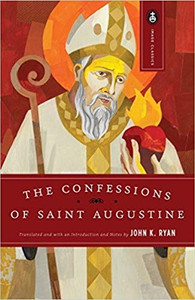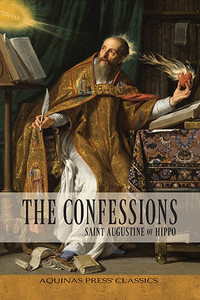
Saint Augustine is often regarded as the most influential Christian thinker after Saint Paul, and City of God is his masterpiece. It began as a reply to the charge that Christianity caused the decline of the Roman Empire, with Augustine showing paganism to contain within itself the seeds of its own destruction. He then proceeds to larger themes, ultimately presenting a cosmic interpretation of history in terms of the struggle between good and evil: the City of God in conflict with the Earthly City. This, the first serious attempt at a philosophy of history, was to have incalculable influence in forming the Western mind on the relations of church and state, and on the Christians place in the temporal order.
The original City of God contained twenty-two books and fills three regular-sized volumes. This edition has been skillfully abridged for the intelligent general reader by Vernon J. Bourke, author of Augustines Quest for Wisdom, making the heart of this monumental work available to a wide audience.





